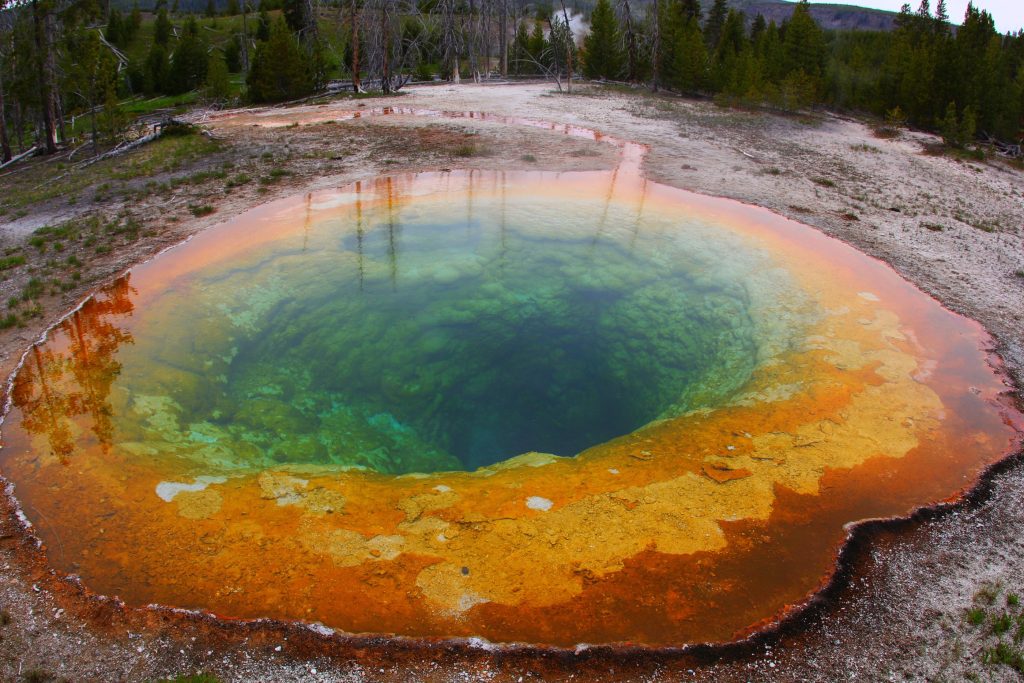
https://www.facebook.com/BYUNewsline/posts/1757223587770938
On July 23rd, 2020, three lives were changed forever. Long-time friends Joe Wheat and Dane Coles took a last minute trip to Grand Prismatic in Yellowstone National Park. Coles, an outdoor photographer, wanted to do the overlook trail to the hot spring.
“Before we even went on the trip, I just had a feeling that this trip was going to be special. I really wanted to go to Grand Prismatic, for some reason that just really stuck out,” Coles said.
The hike was between a mile and a mile and a half to the top. The first half was fairly flat, and the second half was uphill. As they walked along the trail, they saw a man with crutches that didn’t have full use of his legs.
“And we just walked past and my buddy and I just looked at each other and thought, like, man, that’s, that’s really cool. Like, good for him for you know, getting out and doing these cool things and not letting his limitations limit him,” said Joe Wheat.
Coles was touched by it too, but they didn’t stop. They hiked to the top in under 20 minutes, took some photos, and retreated down the trail. On their way down, they saw the man again, resting beneath a tree.
Coles went over to the man and said, “I’m so impressed that you’re trying so hard to get out and see the stuff; this must be really hard for you.”
They asked if he was planning to continue the hike, and the man responded, “I want to, but it’s pretty hard moving so slow. Is it worth it?” Coles showed the man the photos on his camera, and his eyes lit up.
“Do you want us to carry you?” Coles asked.
“What was so amazing to me is he didn’t take offering us to carry him, he didn’t take that as pity,” said Wheat. “I think a lesser person would, when help is offered to them, a lesser person would get offended and say, ‘Oh, how dare you think that I can’t do this on my own.’ And that’s the thing. It wasn’t really about that; we knew he was strong-willed enough, that he was going to make it up there.”
When he was 15, Hans had gone to soccer practice the night before completely fine and woke up the next day paralyzed from the waist down. He’d seen many doctors, but no one knew what had happened; they figured it must’ve been the result of some unknown virus.
“Hans was like, ‘Hey, I’m super light, so it shouldn’t be too bad,’” said Coles. They picked Hans up with a modified fireman’s carry and had to switch positions regularly when their arms got too tired.
“Honestly, once we got up to the top, and just seeing the look in his eyes of like, ‘Oh, my gosh, this is so cool.’ And they are seeing the beauty that’s all around them. It was just really, really special to be a part of that,” said Wheat.
“He motivated us, like, totally changed my life, hearing his story,” said Coles. “And then he said, ‘But then there came a point where I realized, I don’t have my body anymore, but I have my mind, and that’s what matters.’”
They carried Hans back down the trail and exchanged instagrams with each other. When they turned to walk away, both Coles and Wheat started to cry.
“When you have the opportunity and the ability to allow someone to see something that they otherwise wouldn’t be able to see, it’s just kind of a no-brainer that you’d want to help them. You’d want to help them see that.”




